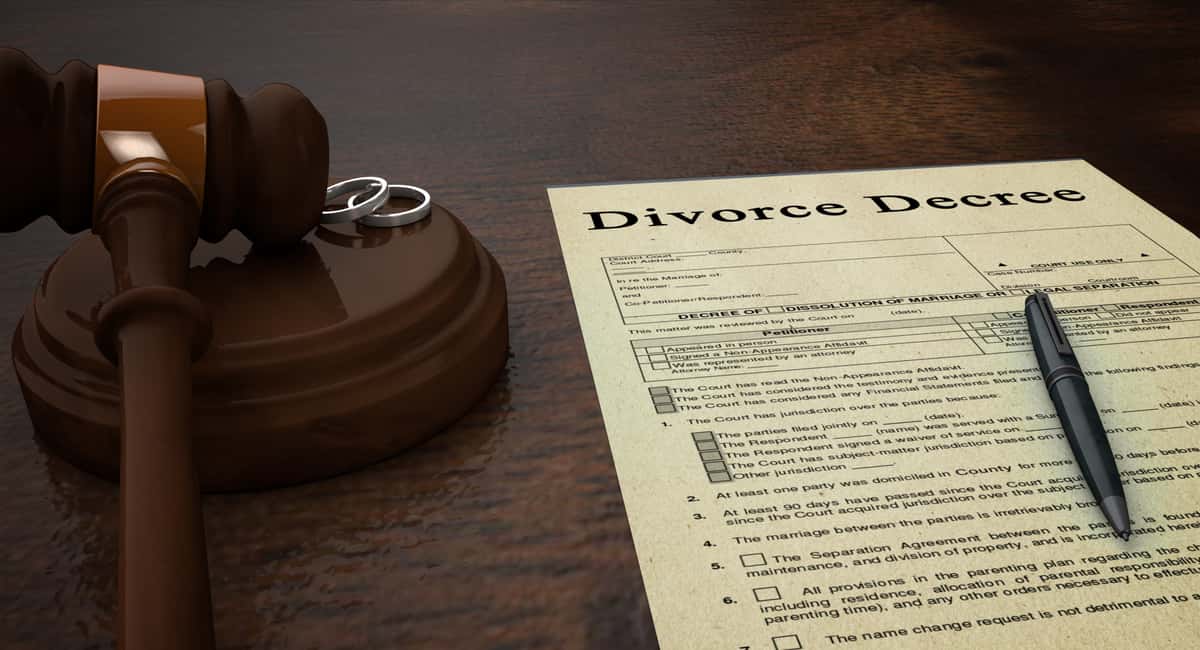
Colorado Divorce Law: 7 Important Things You Need to Know Before Filing
About 33% of marriages in the US end up in divorce, according to recent statistics. In 2017, nearly 800,000 people got divorced. If you’re seeking a divorce in Colorado, know that you’re not alone.
Before you seek a divorce, there are some things you should know. These 7 things will help you to understand the divorce process in Colorado and what to expect.
Keep reading to learn more about Colorado divorce law and your situation.
1. Residency Requirements
If you want to file for divorce in Colorado, you have to meet strict residency requirements. Either you or your spouse must meet the requirements to prove that Colorado has jurisdiction over your case.
- one party has to live in the state for 90 days preceding the filing
- can be filed in the county where either the petitioner (person filing) or respondent (spouse) lives
If these requirements are met, then the state has jurisdiction over your divorce and the petition for a dissolution of marriage can proceed.
2. Grounds for Divorce
Colorado is a “no-fault” divorce state. This means that they do not consider misconduct (such as adultery) by either party when deciding whether to grant a divorce. This also applies to the decision to award alimony and the division of property.
The grounds for divorce in Colorado is referred to as the “irretrievable breakdown” of the marriage, which basically means that the couple can’t get along and remain married. There’s no consideration of why the marriage breaks down or if there is a person at fault.
3. Division of Property
Since Colorado is a no-fault state, they use a system of equitable distribution of property. This means that anything that is considered marital property is divided equitably between the spouses. Marital property includes any property acquired after the marriage.
It does not include the following:
- gifts
- property that was acquired before the marriage and traded for payment or other property after the marriage
- anything acquired after a legal separation
- anything excluded by a valid legal agreement (e.g., a postnuptial agreement)
It’s important to note that equitable doesn’t necessarily mean equal though. To determine an equitable distribution, the court will consider things such as:
- the contributions of each spouse to the acquisition of the marital property (including contributions of a spouse as a homemaker)
- the value of the property unique to each spouse
- the economic circumstances of each party after the property is divided
It is recommended that the parties try to come to an agreement on the division of property so the courts do not have to.
4. Child Custody
If divorcing parents can agree on child custody, they may do so and the courts do not have to issue a ruling. Many parents will share joint legal custody, which means they share decision-making authority and work out physical custody arrangements that best suit their needs.
If they can’t agree, the courts will have to get involved. Most often, the courts will require divorcing parents to go to mediation, where a mediator will help them work out a parenting plan. If they still can’t agree, a judge will determine the physical and legal custody of the child or children.
The primary consideration is always the best interest of the child.
5. Child Support
Child support is typically calculated using the parent’s income as well as the time they spend with the children. Both parents have a financial responsibility to support the children.
The courts use guidelines to determine child support, and this continues until the child reaches the age of 18. It can be modified only if there is a major change, such as loss of income or gaining physical custody of the child.
6. Alimony
Alimony, or spousal support, is not automatic in all divorces. This is something determined on a case-by-case basis, and it depends on a number of different things. The courts will consider the following:
- the financial resources of the spouse asking for support
- the time it would take for the spouse seeking support to find appropriate employment
- the standard of living that was established while the couple was still married
- how long the marriage lasted
- the age of the spouse seeking support
- the ability of the other spouse (the one being asked to provide the support) to meet his or her own financial needs
The courts will also determine how long the spousal support will last.
7. Hiring an Attorney
Although hiring an attorney isn’t necessary to file for divorce, it is a good idea to consult with one who has expertise in this area. There are many things to consider when getting divorced, and an attorney will often think of things that you or your spouse haven’t.
A knowledgeable attorney fights for your best interests. It is also a good idea to consider hiring an attorney if you have children and you and your spouse are unable to come to an agreement on custody or support.
An attorney will have the best interests of your child in mind, and help you achieve an outcome that is preferable. They will also be able to help you understand what kind of spousal support you may be entitled to, and represent you during the court process.
Colorado Divorce Law and You: All That You Need to Know
Colorado divorce law doesn’t need to be complicated, but you should be sure you do your homework before filing for divorce. Make sure you meet the residency requirements or else the courts won’t even have jurisdiction over your case.
For more information on other legal topics, explore some of the other areas of our site.
